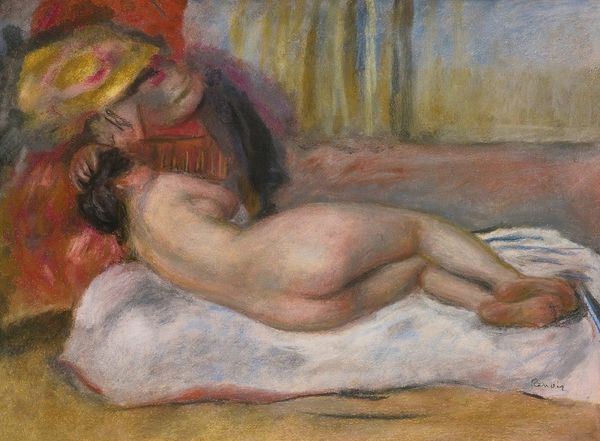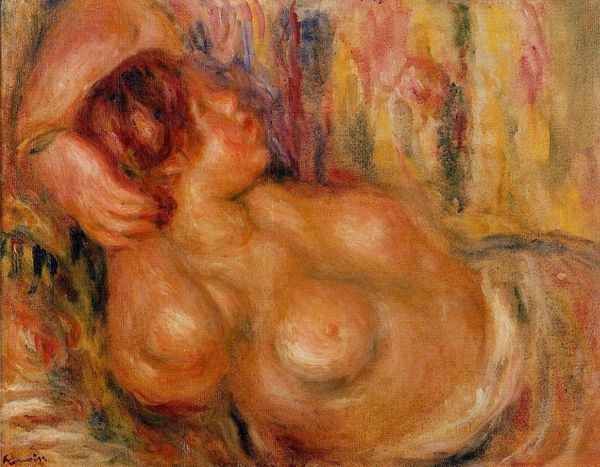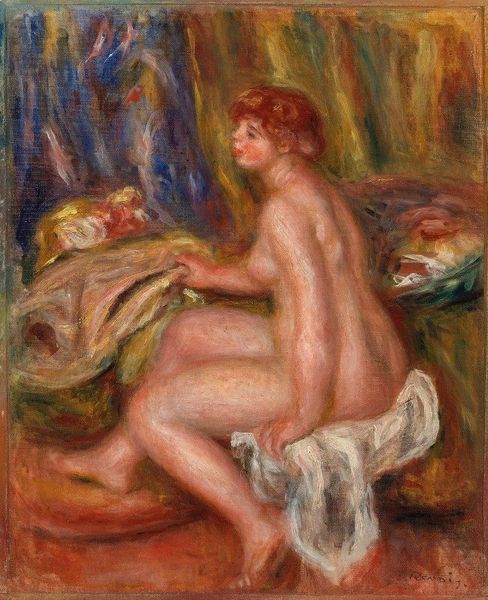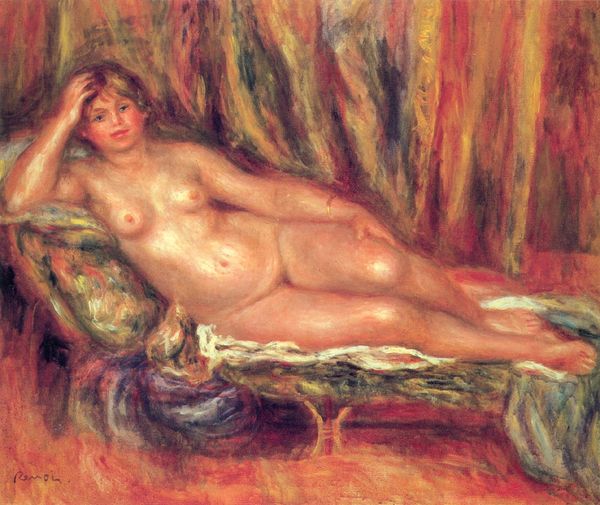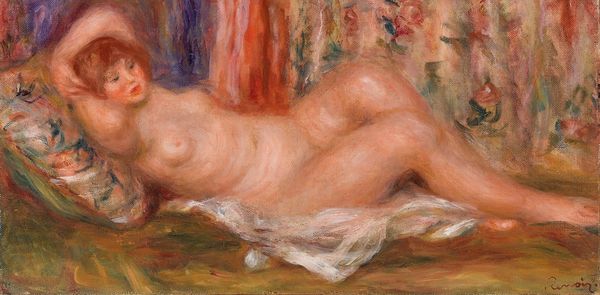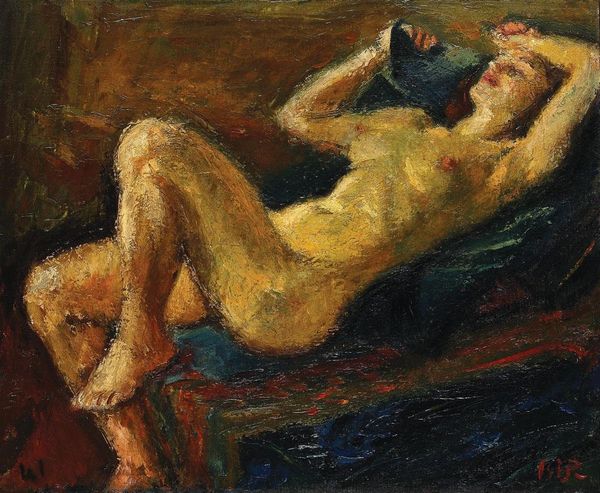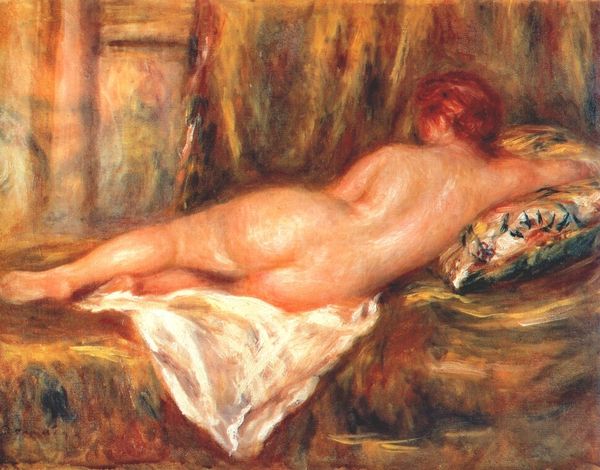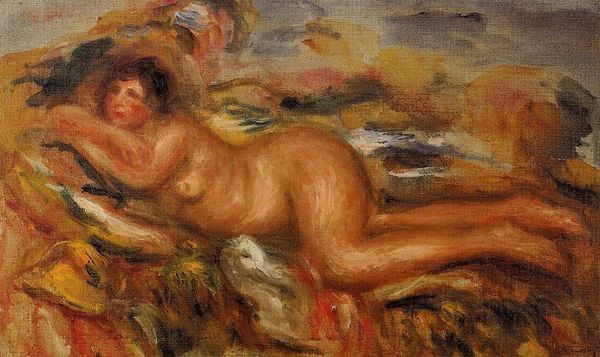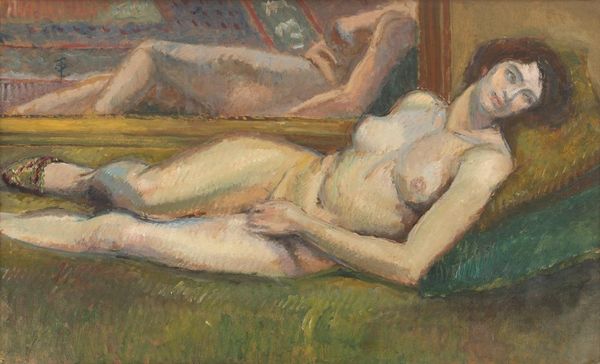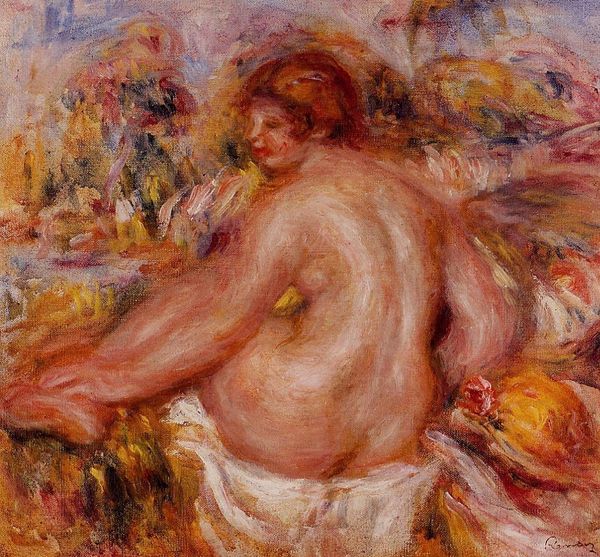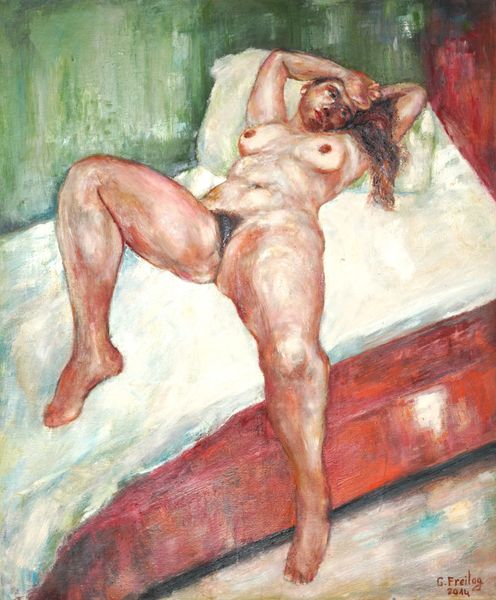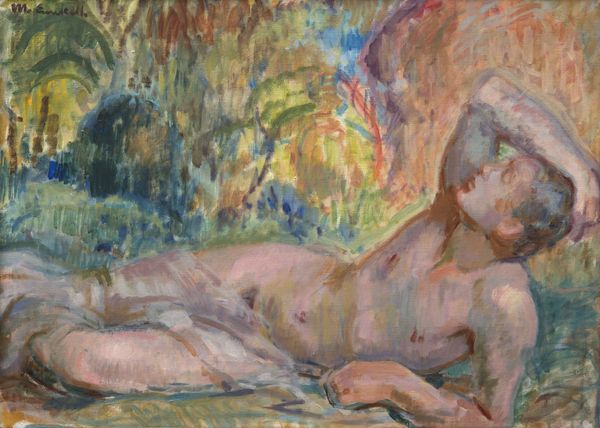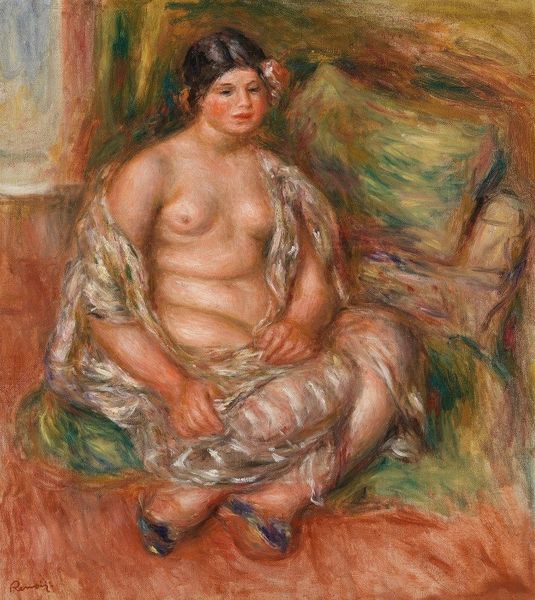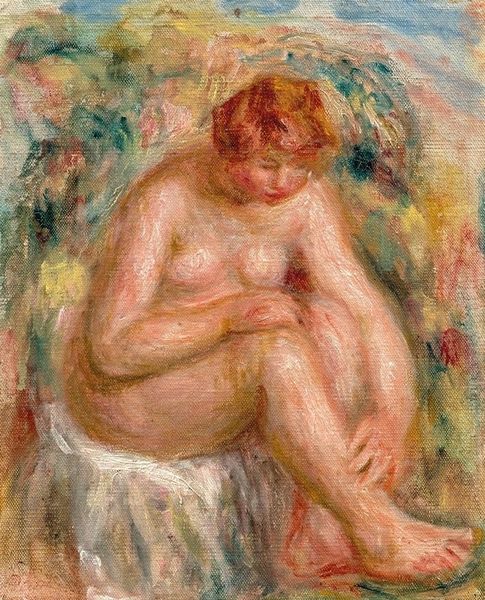
Copyright: Public Domain: Artvee
Curator: Oh, what a luscious painting! I want to dive right into it, frankly. The rosy light is just divine. Editor: And it’s quite a moment to encounter “Nu couché” by Pierre-Auguste Renoir, painted in 1914. Let's situate this work. At first glance, what sociopolitical narratives emerge as relevant? Curator: Well, it makes me think about the sheer indulgence of reclining. Like a languid cat, you know? All warmth and soft edges. It is like seeing pure, unadulterated pleasure, without any kind of critical commentary! It feels positively radical to see pleasure for pleasure’s sake, especially in this day and age, but there’s no denying this lady’s just enjoying herself. And I adore the splashes of colors. Look how he has portrayed the flesh – all peach and rose. Editor: It’s tempting to stay at surface level with Renoir, focusing on his celebrated aesthetics. But looking through the lens of, say, feminist art history, can reveal the politics inherent in the male gaze. Renoir, alongside many impressionist painters, created works primarily consumed and appreciated by men, and this piece reinforces a specific power dynamic. Curator: True enough, but I think it is a bit deeper than just “male gaze”, there is no power in here. There's something wonderfully sensual about it, even if the subject's a bit idealized. Maybe that's just me projecting, but that little glimpse of the sea just adds another layer of freedom. Like she could be anywhere, and perfectly at peace! And, mind you, for someone suffering rheumatoid arthritis, he was damn committed to that sensuousness in color and texture. Editor: Your reading reminds us to remember the context in which art is received is always shifting, which underscores the role of art in society: either reinforcing social norms, or offering alternatives. Curator: Ah, the big dance of critique and creation, hand-in-hand, right? It does come across rather cozy doesn't it, though, despite any analytical angles. Editor: Exactly. "Nu couché", in the end, really compels us to look closely and examine all that can be gleaned.
Comments
No comments
Be the first to comment and join the conversation on the ultimate creative platform.
